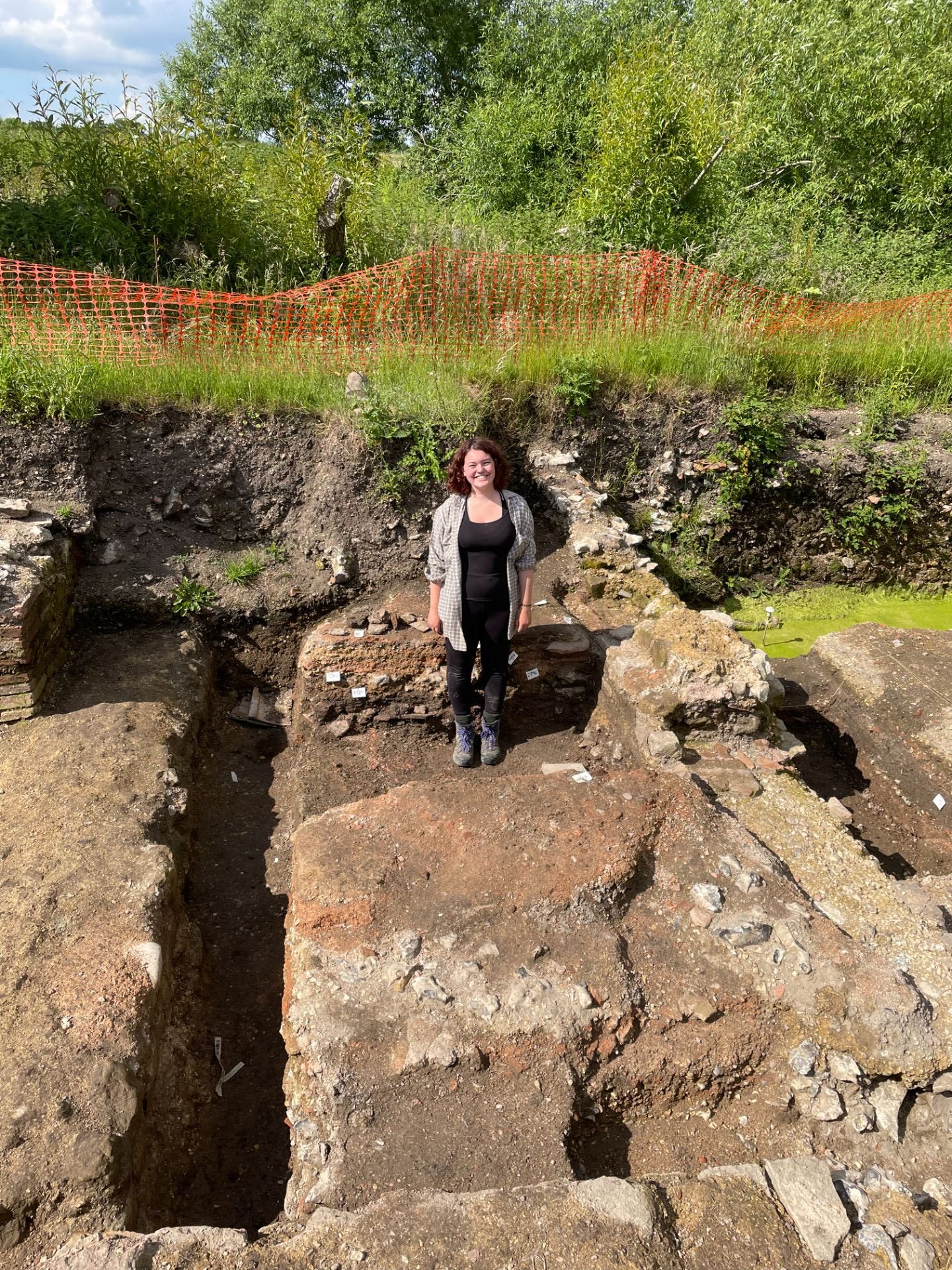by Connie Buckingham, BA Archaeology, Part 3

People with neurodiverse conditions (raging from dyslexia, ADHD to autism etc) are drawn to and thrive in archaeology. Over 8.5% of students currently in the Archaeology Department at Reading are registered as neurodivergent, me being one of them. This is higher than the university average of 5.3%. After facing my entire schooling ‘not thinking the right way’, I have found a home in archaeology as a place which actively encourages ‘outside the box’ thinking. Archaeology requires the ability to see patterns in data, formulate novel ideas and challenge assumptions in ways that come naturally to those with neurodiverse conditions. Such capabilities are valued just as highly outside archaeology degree programmes as within them. For example, some employers like GCHQ specifically seek to recruit graduates with neurodiverse conditions because they have been proven to be better at code cracking: https://www.gchq.gov.uk/information/daring-to-think-differently-and-be-different
The University has various systems in place to support neurodiverse students to achieve their full academic and personal potential. This includes the support channelled through the Disability Advisory Service (DAS) and the ‘green sticker’ system which helps to create a level playing field in the assessment of academic performance by exempting spelling, punctuation, and grammar in the marking of coursework submitted by registered neurodivergent students. While these mechanisms are certainly beneficial, they do not provide a universal panacea, nor has their effectiveness been evaluated.
Over the past 10 months, I have been employed on a project led by Dr Gabor Thomas in Archaeology that has been probing into these issues, drawing upon the rich experiences of its neurodivergent undergraduate and Masters’ students. Supported by a grant from the Teaching and Learning Enhancement Projects (TLEP) scheme and conducted in close partnership with the Disability Advisory Service, the project has evaluated the effectiveness of current teaching and feedback practice with regards to supporting neurodivergent student, enacted short-term recommendations and paved the way for future improvements.
Through a series of student focus groups, we have evaluated the strengths and weaknesses of the current department practices from the perspective of neurodivergent students. We have used this feedback, as well as that from a more targeted online survey, to enact positive change in the department. A key lesson from this consultation is that most neurodivergent students want constructive feedback on writing style to enable them to become better and clearer writers. The green sticker system partly works against this because, despite its good intentions, it tends to disincentivise staff from commenting on these aspects of work.
As a result of all the feedback received, Archaeology has implemented new ‘quick-links’ set in Turnitin enabling markers to point students in the direction of specific on-line resources and tutorials contained on the university’s study advice webpages. We have also undertaken a more in-depth review of written feedback and shared strategies for formulating clearer, more consistent feedback, including on written skills, that is easier for neurodivergent students to process. This will allow for more constructive feedback for all students, not just those with neurodiverse conditions. Additionally, the department has revised its enrolment process to encourage early conversations between students and academic tutor about possible struggles with academic writing. Promotional material for the department has been added to focus on neurodiverse conditions, including clips from an interview with University of Reading alumni and dyslexic, Professor Duncan Sayer, showing prospective students that a highly successful academic career is very achievable for those with neurodiverse conditions. In the longer term, Archaeology will apply the lessons learnt from the project to redesign the study skills sessions embedded in Part 1 teaching to make them more digestible and engaging for neurodivergent students.
I have been involved in all areas of the neurodiversity project and have found the role hugely rewarding. I have always viewed my dyslexia as a strength as well as a challenge and it has been very self-affirming to be able to help others with similar difficulties. The more the university can do to make those with neurodiverse conditions feel supported the more inclusive it will become.


